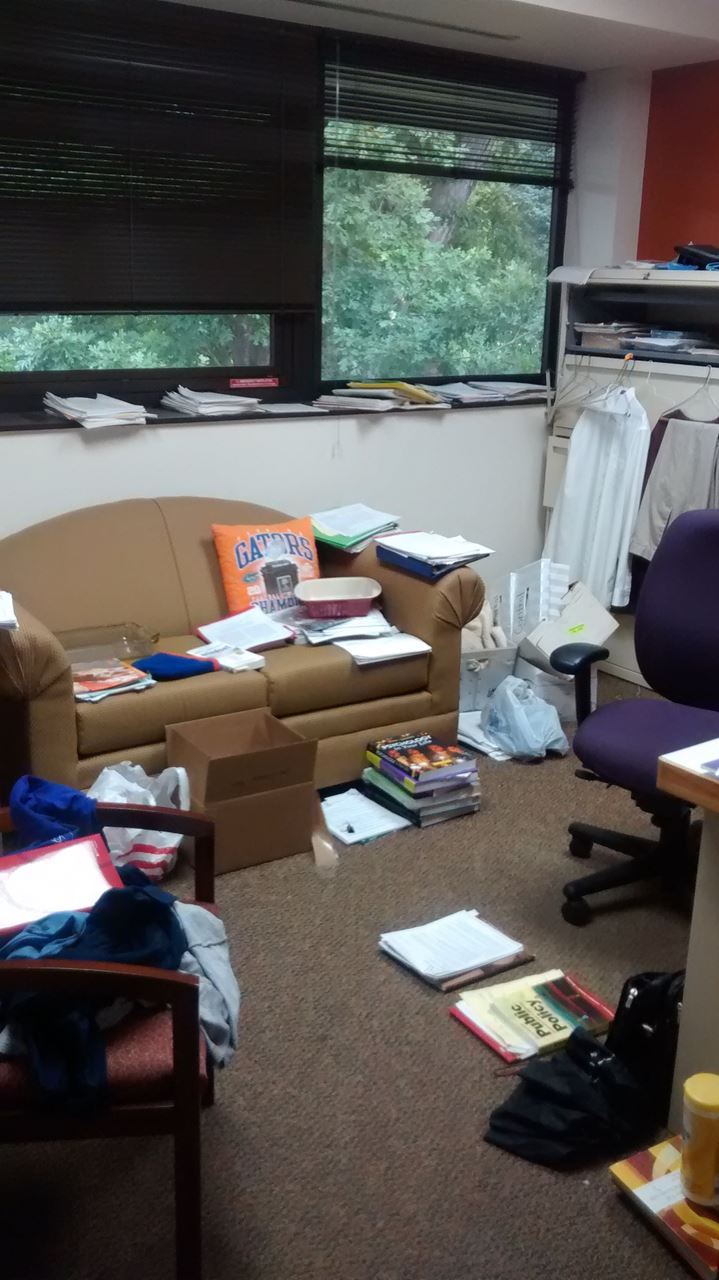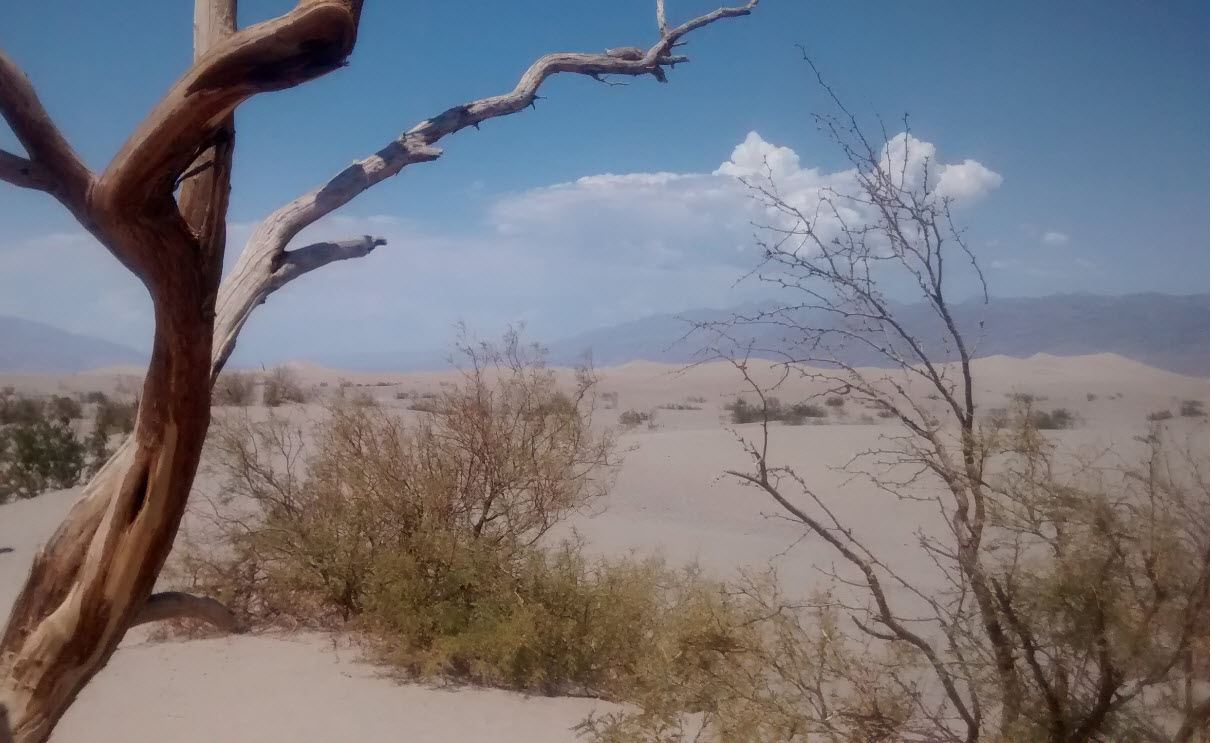 School name: Albion College
School name: Albion College
Type of school: 4-year Baccalaureate
School locale: Albion, MI (about 50 miles west of Ann Arbor and 175 miles east of Chicago)
Classes you teach: Introductory Psychology, Research Methods, Statistics, Industrial/Organizational Psychology, Senior Seminar, Public Policy in Film (which is a first-year seminar), Black Swans (a College-wide honor’s seminar that discusses the effects of seemingly rare historical events)
Average class size: 35 for Intro Psychology; 16-24 in Methods and Stats; 24 in I/O Psychology; 15 in Senior Sem, First-year sem, and Black Swans
What’s the best advice about teaching you’ve ever received? I am not sure where I heard it or who told it to me, probably it was over breakfast at NIToP, someone told me that if you think you’re going too slowly through the material, you probably need to slow down. No, that didn’t make sense to me either, but students never quite “get it” the way you think they do or the way they appear to get it. Keep close tabs on what and *how* they are understanding….it is amazing the feedback you get on the one-minute end-of-class “tell me what you learned in class” index card routine. Grading tests provides numerous insights into how students don’t understand something, allowing me to adjust (hopefully by improving) my teaching of that information with future students. Heck, a quick two-or three-question end-of-class formative quiz can be quite enlightening, too. It’s not what students don’t know that’s the problem; it’s what they think they know that just ain’t so (to paraphrase Mark Twain, I think it was but am not sure).
What book or article has shaped your work as a psychology teacher? Is Bill McKeachie’s Teaching Tips too obvious? I’ll offer something different…it’s a journal that shaped my work as a teacher – Teaching of Psychology. Yeah, really surprising, I know. I discovered this outlet when I was a graduate student at the University of Florida, working with Rich Griggs. He knew I was interested in teaching, and he said that if I was interesting in teaching well, this is a source I needed to read, cover-to-cover (indeed, Rich always emphasized that doing something and doing something well were far from synonymous, something I try to keep in mind to this day). I loved the ideas that journal offered me as a relatively new teacher, and I learned at an early age that it was critical to see if what I did in class actually had an effect, ideally a positive effect, on students. There were a few articles back in the day that really made an impression on me and helped me form what I think was a strong foundation for me career. First, Dana Dunn and Stacey Zaremba’s (1997) paper, Thriving at Liberal Arts College: The More Compleat Academic is a classic in my mind. It gave me the script, while I was in graduate school, of what to expect and, as is obvious from the title, succeed in such a role. I was a student in such an environment, so it was tempting for me to think I knew more about being a faculty member at such a school than was really the case. Even now, whenever I talk with graduate students or relatively new faculty at these sorts of schools, I am quick to refer them to this paper. In addition, Thomas Plante’s (1998) paper, A Laboratory Group Model for Engaging Undergraduates in Faculty Research was another one that helped me realize not only that faculty at schools focused on undergraduate education could still be active in research, but provided me with ideas for how to do so. Its value to me lied in its simplicity; it was a great piece to read right before starting as a faculty member at similar type of school as Plante described in that paper. I followed his lead early in my career, made adjustments as needed, and I am still here, so something must have went right.
Briefly tell us about your favorite lecture topic or course to teach.
I love teaching Intro and the methods and statistics courses in psychology, and my first-year and honors seminars. Not that I don’t enjoy teaching content-area courses, but the reality is, it’s really less challenging teaching content area material than it is to teach broader classes (assuming, of course, you are trained in that content area, which is certainly not always the case). Especially in methods and statistics, students are expecting the worst, so in a sense, teaching those classes is like taking over as manager for a baseball team that finished in last place the previous year -- there is nowhere to go but up. These two classes in particular have challenged me to make information accessible and relatable to students. Some students appreciate the theory and number-crunching, but even those students need to understand how to use this information. Even the most mundane of circumstances can be used to teach complicated material. For instance, one day when I was doing yard work, I scrapped up my elbow. It was a fairly noticeable scrape, one that I could not really hide from others, but it did not impair my movement or hurt. Now, much like statistical effect sizes can be classified as trivial, weak, moderate, or strong, so too can elbow scrapes. Indeed, my injury was a great prelude to discussing Cohen’s d. Who knew my elbow could be a tool to teach a statistical concept? Likewise, the concept of a statistical interaction is one that takes a while for students to really “get” the first time they encounter it. However, it is a concept I find students do understand, albeit not statistically, before they ever encounter it in these classes. Specifically, for students who have ever baked or cooked a dish, they have experienced an interaction. Combining things to make a dish or baked treat requires using different ingredients (factors) in different amounts (levels) to make the outcome delicious. My general point…look for instances of what you teach in circumstances to which almost any person could relate. If it can be done in statistics, it can be done for any other course we teach!
By the way, the class was torn whether my elbow scrape was a weak or moderate scrape, which gave me the chance to talk about the somewhat arbitrary nature of how “cutoffs” are established in statistics for use in the “real world.”
Briefly describe a favorite assignment or in-class activity.
There are two ways to answer this question, so I’ll give two responses. First, with respect to enjoyment, I like introducing interactions to my statistics class by making chocolate chip cookies in class. Admittedly, the data are mixed on how well students learn from this activity, I think because they are so bewildered to see their teacher making cookies in class. Regardless, it gets their attention and gives me a chance to dive into the topic from a statistical perspective with them relatively engaged at that point. I must admit, I cannot bake the cookies in class (really, our classrooms don’t have ovens), so it is wasteful in that regard. Also, students expect to receive real homemade cookies, which I inevitably bring them in the next class period, which is not hard to do with my relatively small class sizes, admittedly.
Second, with respect to teaching what students find difficult, I love my end-of-class cumulative assignment in research methods and statistics. I love it because it is relatively straightforward, and it also puts students in a semi-real-world situation. Specifically, I give them situations in which statistics can be used to answer a “real-world” problem. For example, a local restaurant is test-marketing four new dipping sauces for their breadsticks. Students are asked to describe a research design the restaurant can use to learn what sauce(s) their customers prefer, then describe the appropriate statistical analysis to use, given the design they described. There are no calculations or analyses to conduct and interpret; students have handouts upon handouts from throughout the course for those details. Rather, this assignment requires purely conceptual understanding of design and analyses. If they don’t understand these considerations, the details of conducting analyses are worthless.
What teaching and learning techniques work best for you?
Whatever works best for my students works best for me. In general, that means, as I’ve mentioned previously, the more I can get their attention with something they can relate to, before delving into theory or other relatively complex material, the better. I don’t like to introduce classical conditioning with definitions of UCS, CS, UCR, and CR or the work of Pavlov or Twitmyer. Rather, I’d prefer to bring up LeBron James or Shaquille O’Neal (yes, my students know who Shaq is) and the products they endorse. We can talk about why those companies have these celebrities endorsing their products, which can open the door to UCS, CS, UCR, and CR and other nitty-gritty classical conditioning concepts. In essence, I am going fishing when I teach; I bait the hook with something that students can talk about in a nonacademic sense (I hope), then reel them in with the actual content when they are hooked (hence my making cookies in class, too). I suppose I am making use of foot-in-the-door, too…get them to start talking and discussing with relatable information, then they will continue to do so with the technical information.
 What’s your workspace like? Have you ever seen the late 1980s movie “Wall Street” or seen the floor of the New York Stock Exchange during that time? That’s pretty much my office at school and my office at home. Organized chaos is a good way to describe it. I think it motivates me to literally see the work I need to do; I worry as we all rely on technology more and more, I’ll forget to do things because they are stored electronically, where I cannot readily see them. It’s already starting to happen, I fear.
What’s your workspace like? Have you ever seen the late 1980s movie “Wall Street” or seen the floor of the New York Stock Exchange during that time? That’s pretty much my office at school and my office at home. Organized chaos is a good way to describe it. I think it motivates me to literally see the work I need to do; I worry as we all rely on technology more and more, I’ll forget to do things because they are stored electronically, where I cannot readily see them. It’s already starting to happen, I fear.
Three words that best describe your teaching style.
Flexibly-organized, skill-focused, proactive (these are only three words because the first two are both hyphenated, just sayin’).
What is your teaching philosophy in 8 words or fewer?
Assume nothing
Tell us about a teaching disaster (or embarrassment) you’ve had and how you dealt with the situation.
This was the hardest question to answer because there were so many to choose from. Then again, a certain amount of teacher embarrassment can endear a teacher to their students, so when it happens, I really don’t take close note of it. We all have demonstrations and activities that don’t work as we hoped, so that really isn’t something I fret about. When that happens, I just try to figure out how to make it work better next time, and oftentimes asking some of my better students help in this regard. However, one day in particular does come to mind. My very first class, ever, as a grad assistant at the University of Florida, I was of course scheduled in a room about as far across campus from my office as one can get. As I am walking across campus, I feel a tap on my left shoulder, so I turn look over that shoulder. I saw no one, just figured I was imagining things. I was extremely nervous, being the first class session I ever taught of my “own” class, so I just figured it was those nerves. But a couple of seconds later, I realized there was something on my left shoulder…when I looked again, I saw that a bird had made a deposit that landed on my shirt’s left shoulder. What a great way to start a new semester. Because I had such a long walk, I left my office super early, so I was in the building in which I was teaching well ahead of time. I was able to get to the bathroom and clean off the bird’s deposit (and dry off, as walking across campus in central Florida in late August, coupled with the nerves of Day 1, I was sweating something fierce). Alas, my first day of teaching was not over! Wanting to come off as “tough”, I started that first lecture after doing introductions and overviewing the syllabus. This was the pPP era (pre PowerPoint), so we had an overhead projector and “slides” that we could write on. I had my trusty pen, and got a little over-enthused, as I took it to the screen. Just as I started to write on the screen, I caught myself, quickly tried to make it look to the class like I was gesturing. I don’t think they noticed; they were likely just as nervous as I was.
What is something your students would be surprised to learn about you?
They assume I majored in psychology, but in fact, I majored in finance and economics (with a minor in psychology). I always use this story with my first-years around registration time each fall, that your major matters less than the skills you build, the experiences you have to talk about in future interviews, and just doing well and showing the capacity to learn, which everyone (graduate schools and employers) is particularly concerned about. So, I guess my students would not be surprised to learn this about me because most already know it. Regardless, it allows them to realize that not getting into a particular class or not being able to decide on a specific major is not the end of the world….I did not choose my major til after I had my undergraduate degree, in some ways!
What would surprise them, something I do not often reveal? Read on to the next question and my response!
 What are you currently reading for pleasure? I am reading two books, one titled “Sun, Sin, and Suburbia: The History of Modern Las Vegas” and the other “The Strip: Las Vegas and the Architecture of the American Dream.” I went to Vegas for the first time a year after graduating from college for a bachelor’s party and fell in love with area. I mean, Vegas itself is a psychologist’s playground in so many ways….the gambling of course, but the shows are something special, and the area is so rich in history, something that I love to learn about, so that’s why I am reading these books. It is such a geographically beautiful area, too….I love the hiking out there; hiking through Death Valley was something I’ll never forget (just don’t do it the summertime). The thrill rides at the Stratosphere are not only fun (Insanity is my favorite), but offer a wonderful view of the city. I am contemplating teaching an honor’s seminar on Vegas and the surrounding area, though students will likely expect a trip in such a class, and I am not sure this is the destination I want to promote for student travel. Regardless, next summer (assuming it is safe to do so) I plan to go out there and eat myself into oblivion, so many unique places to eat both on the Strip and Downtown. I’ve already been looking at the menu for China Poblano and would love suggestions for other restaurants from those who’ve found a special place to eat out there!
What are you currently reading for pleasure? I am reading two books, one titled “Sun, Sin, and Suburbia: The History of Modern Las Vegas” and the other “The Strip: Las Vegas and the Architecture of the American Dream.” I went to Vegas for the first time a year after graduating from college for a bachelor’s party and fell in love with area. I mean, Vegas itself is a psychologist’s playground in so many ways….the gambling of course, but the shows are something special, and the area is so rich in history, something that I love to learn about, so that’s why I am reading these books. It is such a geographically beautiful area, too….I love the hiking out there; hiking through Death Valley was something I’ll never forget (just don’t do it the summertime). The thrill rides at the Stratosphere are not only fun (Insanity is my favorite), but offer a wonderful view of the city. I am contemplating teaching an honor’s seminar on Vegas and the surrounding area, though students will likely expect a trip in such a class, and I am not sure this is the destination I want to promote for student travel. Regardless, next summer (assuming it is safe to do so) I plan to go out there and eat myself into oblivion, so many unique places to eat both on the Strip and Downtown. I’ve already been looking at the menu for China Poblano and would love suggestions for other restaurants from those who’ve found a special place to eat out there!
What tech tool could you not live without?
Email….that’s it (and frankly, some days my life would be better if I didn’t have that either). Maybe PowerPoint for some things, though as Charles Brewer once said, PowerPoint has lots of Power but minimal Point. Right now, I am making due with Zoom and Google Meet, and those certainly have their place, pandemic or not. However, I am saddened in this time where we all need technology for pretty much every facet of our teaching that we may think teaching is inherently enhanced the more technology is integrated into the class. Where’s the evidence we should be doing this? I am learning about a ton of tools I could use in my classes, but just because they are available doesn’t mean I should use them, even in these strange times. I do like discussion boards on my course web and plan to use those more post-pandemic, but it’s not because it’s cool or something I can add to my list of things I can say I use to impress my administration….it’s because in the spring, I noticed that some of my quieter students in-person would contribute more when they had this option. No idea if there is evidence that introverted and shy students participate more in discussion boards than in in-person classes, but so long as it doesn’t hurt anyone, it’s worth doing to help a segment of my students. At least at Albion, students want interpersonal connections, and I suspect that is the case with most undergraduate students. I worry technology is eroding these connections. I don’t see technology as a tool bringing people closer together; in fact, if I had to wager on it, I’d bet technology is being used more to drive people apart…and to a dangerous extent.
What is your hallway chatter like? What do you talk to colleagues about most (whether or not it is related to teaching/school)?
Wow, all sorts of random things….sure, we talk about department issues, brainstorming ways to help specific students who are encountering specific issues (like needing to find transportation or and from an internship site), bouncing ideas off each other for class activities or other pedagogical considerations. My colleagues around campus like to make fun of me for being an SEC football fan. Given recent history, I am not sure they have much to talk about, especially my Big Ten-obsessed colleagues, to whom I’ve often said that if Vanderbilt played football in the Big Ten, they’d be in the national semi-finals every year. So, yes, we talk trash around here. Usually it provides a nice break from talking about details of committee work
And finally... presenting Sybil and Hans!

